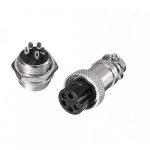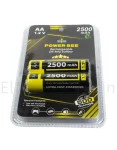Every electronic circuit needs resistors, which control current and voltage, protect sensitive components and adjust signal level. Passive elements, they perform more or less the same, and at almost the same way, thereby providing consistent and predictable resistance, to help the circuits operate safely and efficiently. In this article you will learn about the types of resistors, their applications and characteristics. Resistors are extensively used as applications in voltage regulation, filtering, and current limiting making them a part of almost all electrical devices such as consumer electronics and industrial machinery.
Choosing the Right Types of Resistors
There’s a big difference in application and performance when choosing the correct resistor for a certain application. There are several types of resistor, fixed and variable, and specialty resistor types such as thermistors and varistors which are designed for specific applications. Varistor are adjustable, and as are normal, while variable resistors however can be adjustable as needed. There are specialty resistors, metal film and wirewound, used in high precision applications for low tolerance and stability. Understanding how to select the proper type, power rating and tolerance can increase circuit reliability and resistors are a fundamental part of enabling efficient and functional designs.






